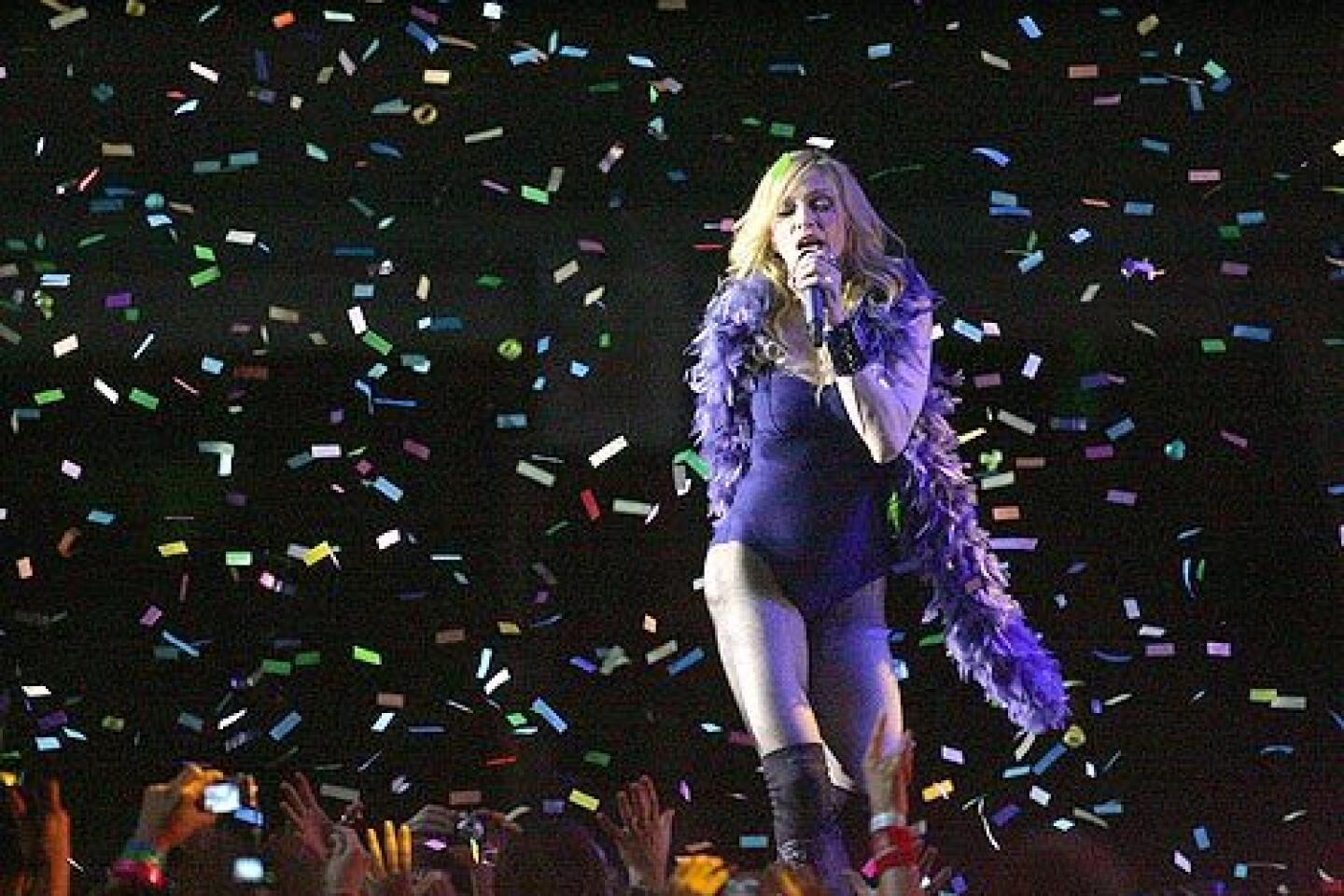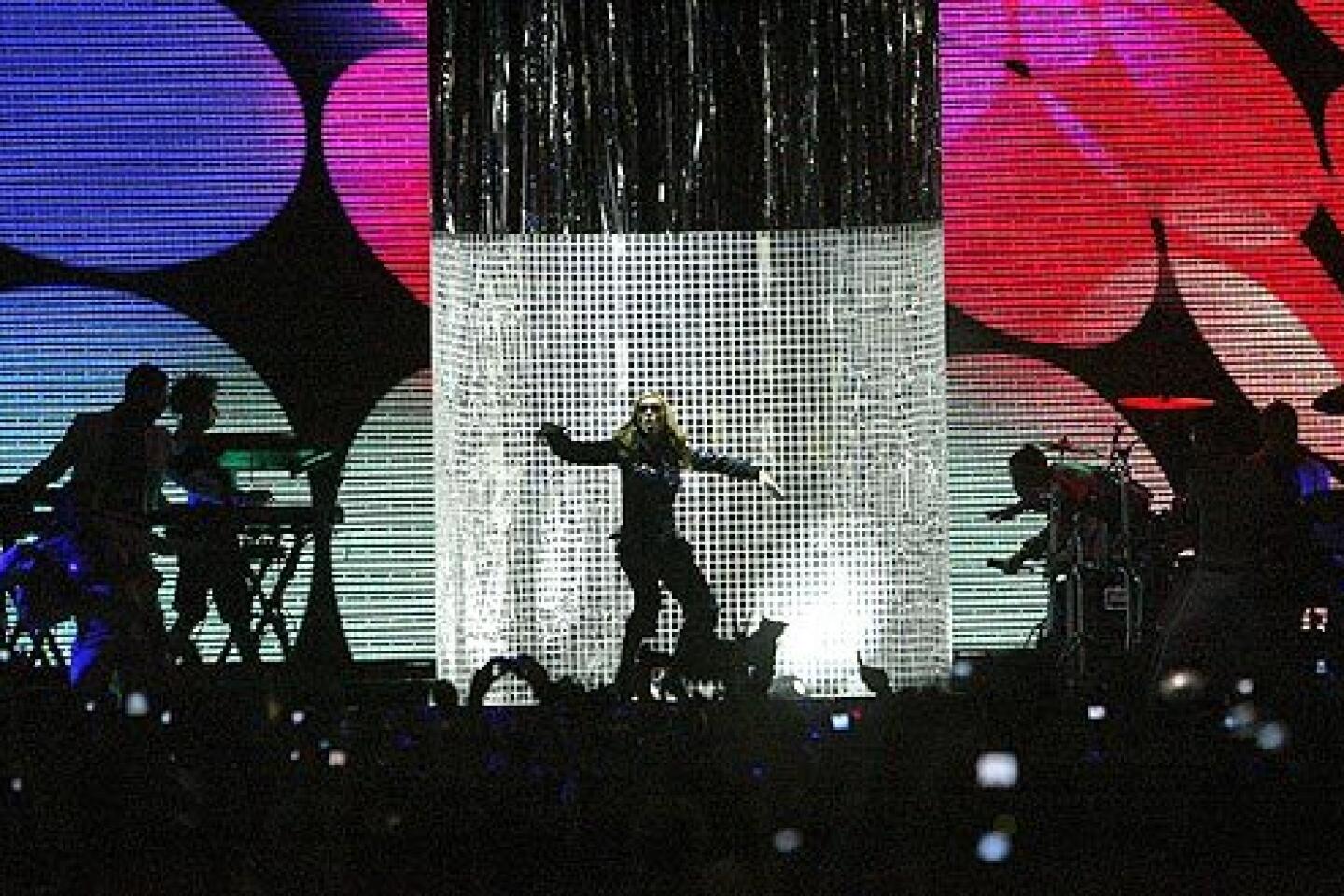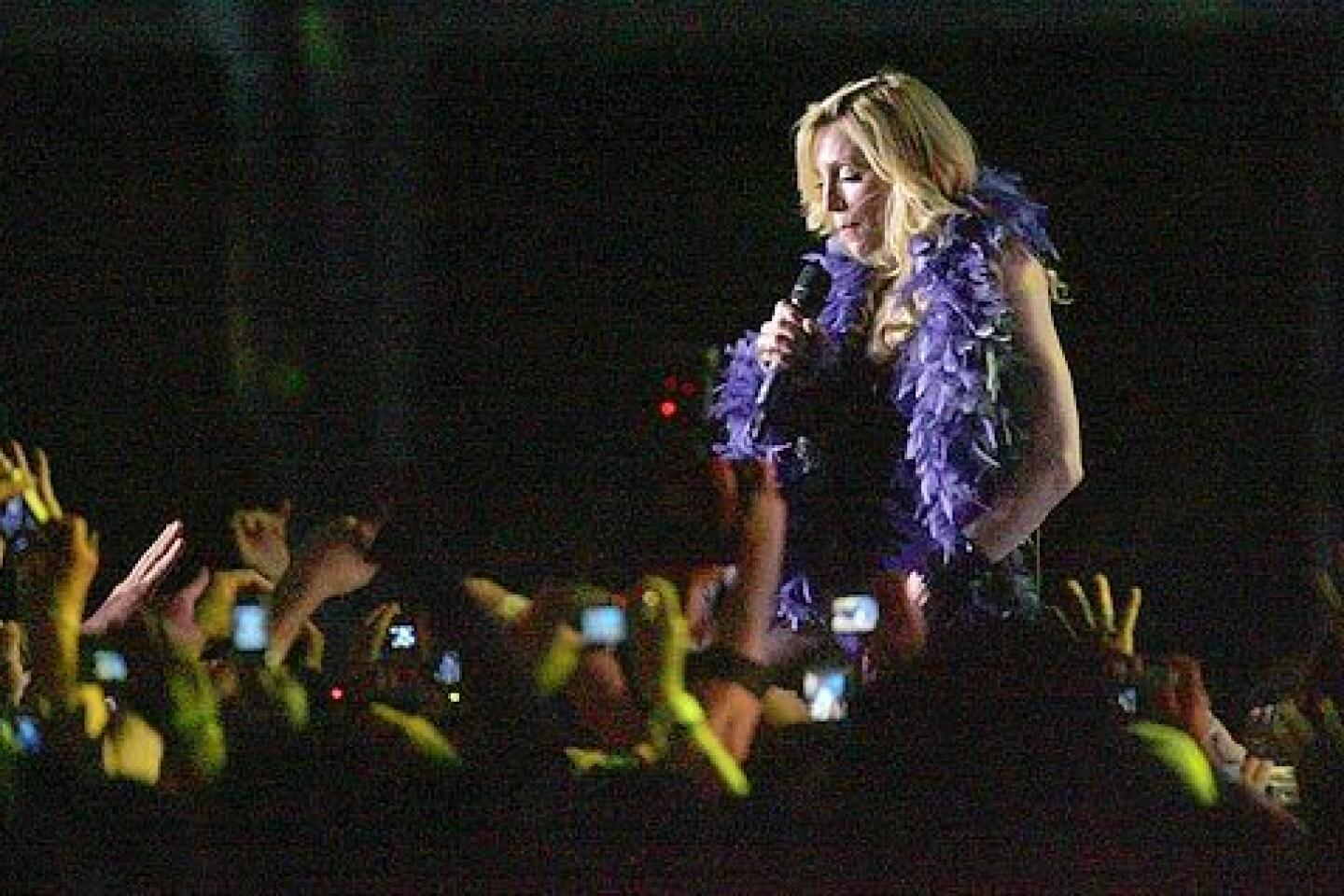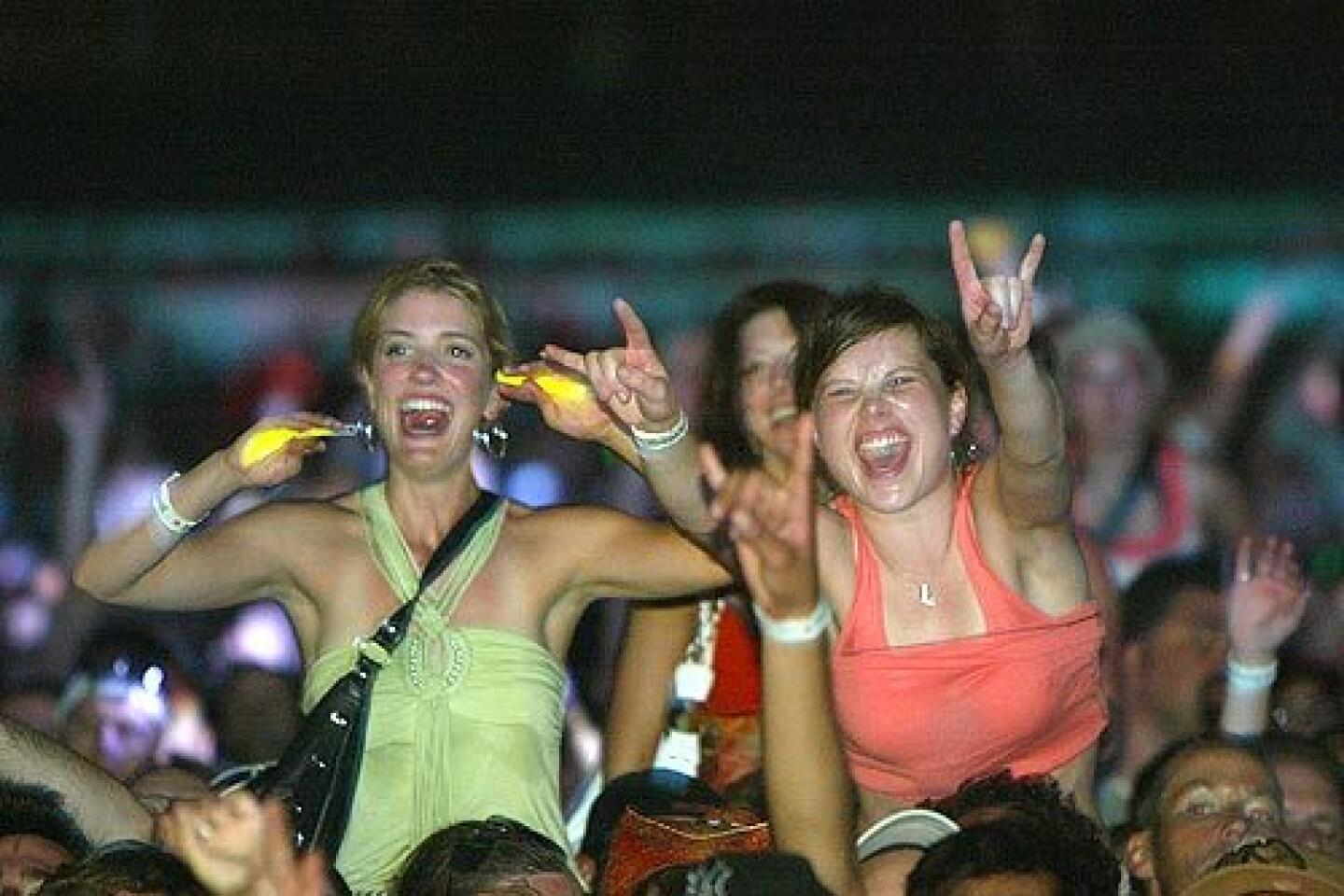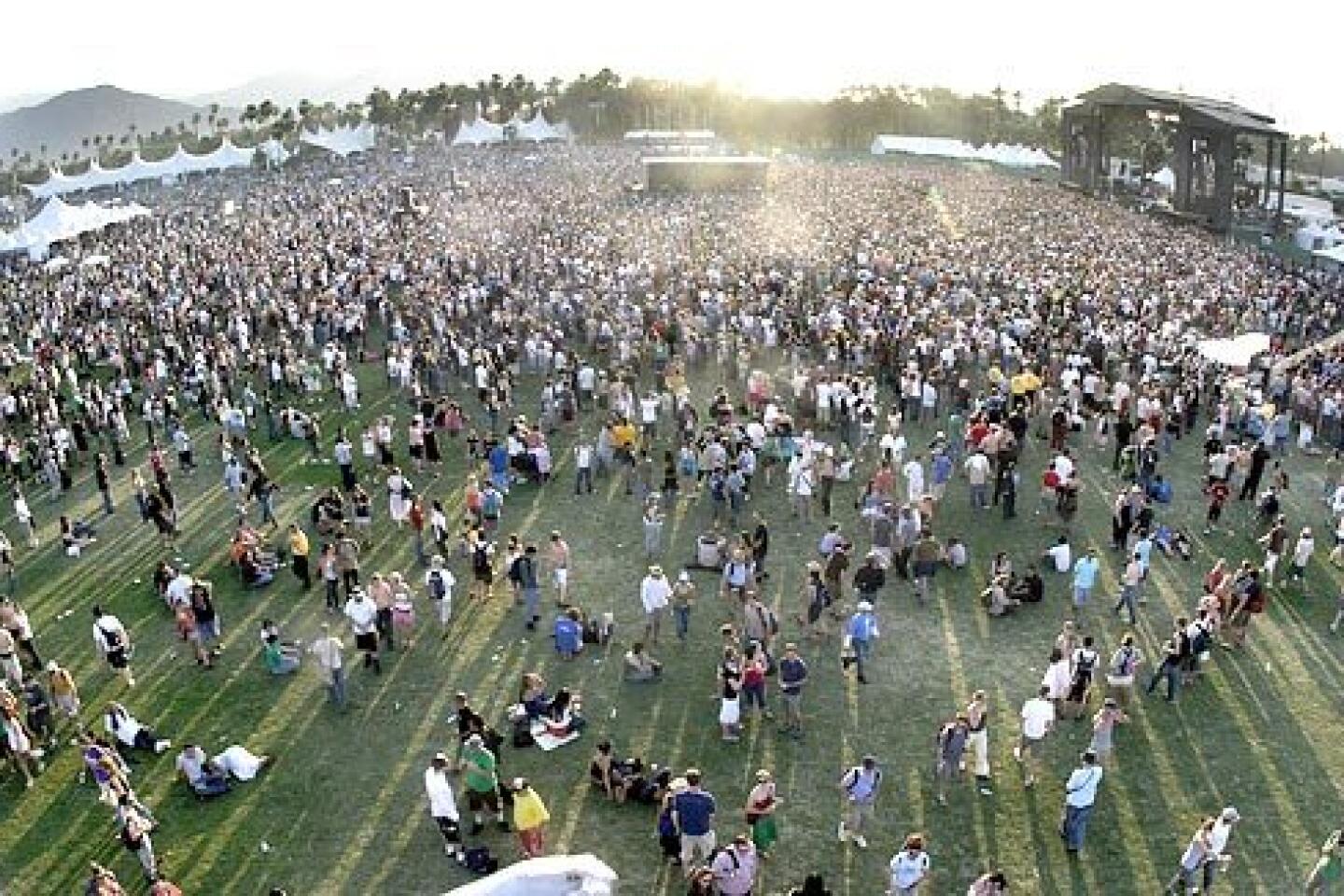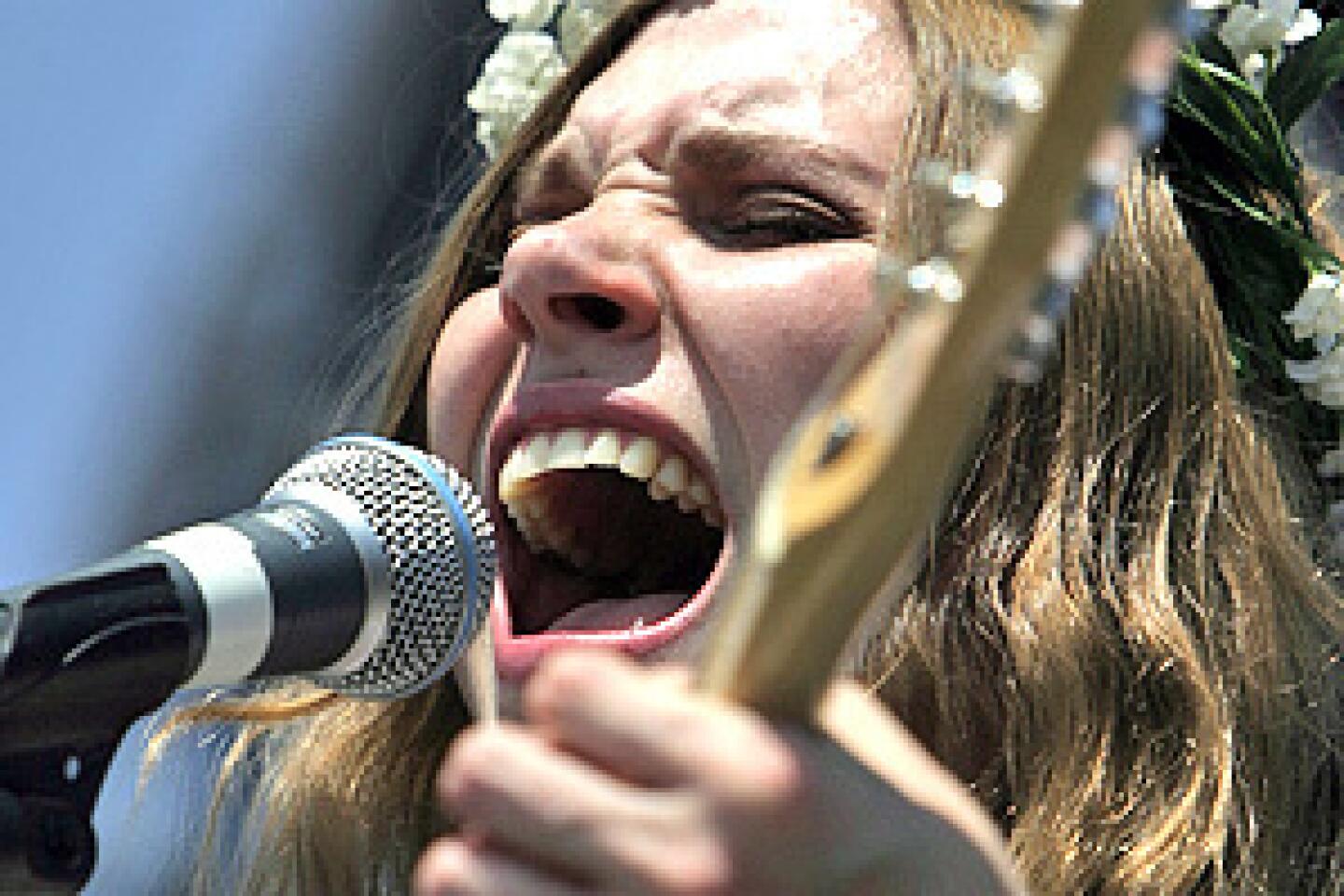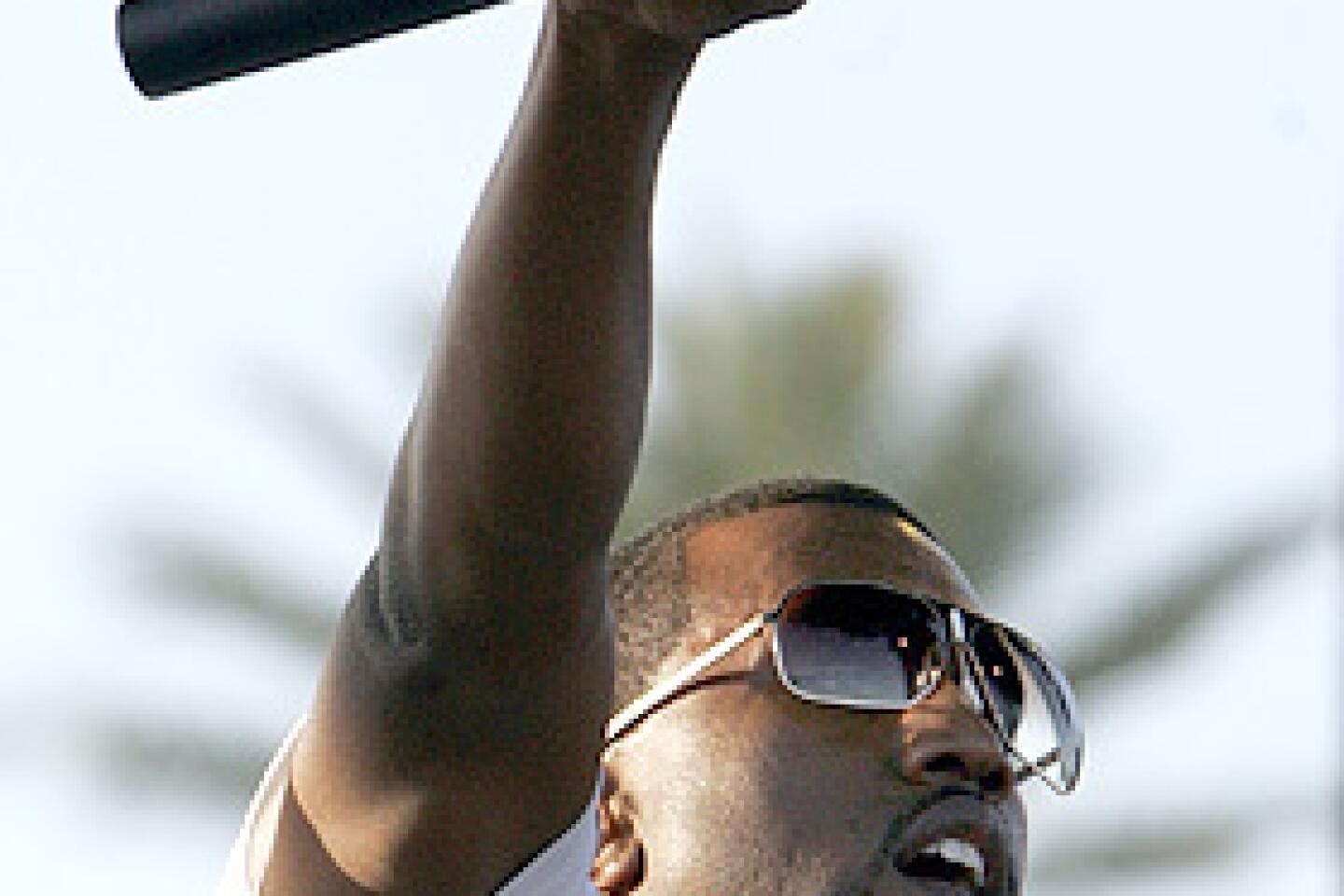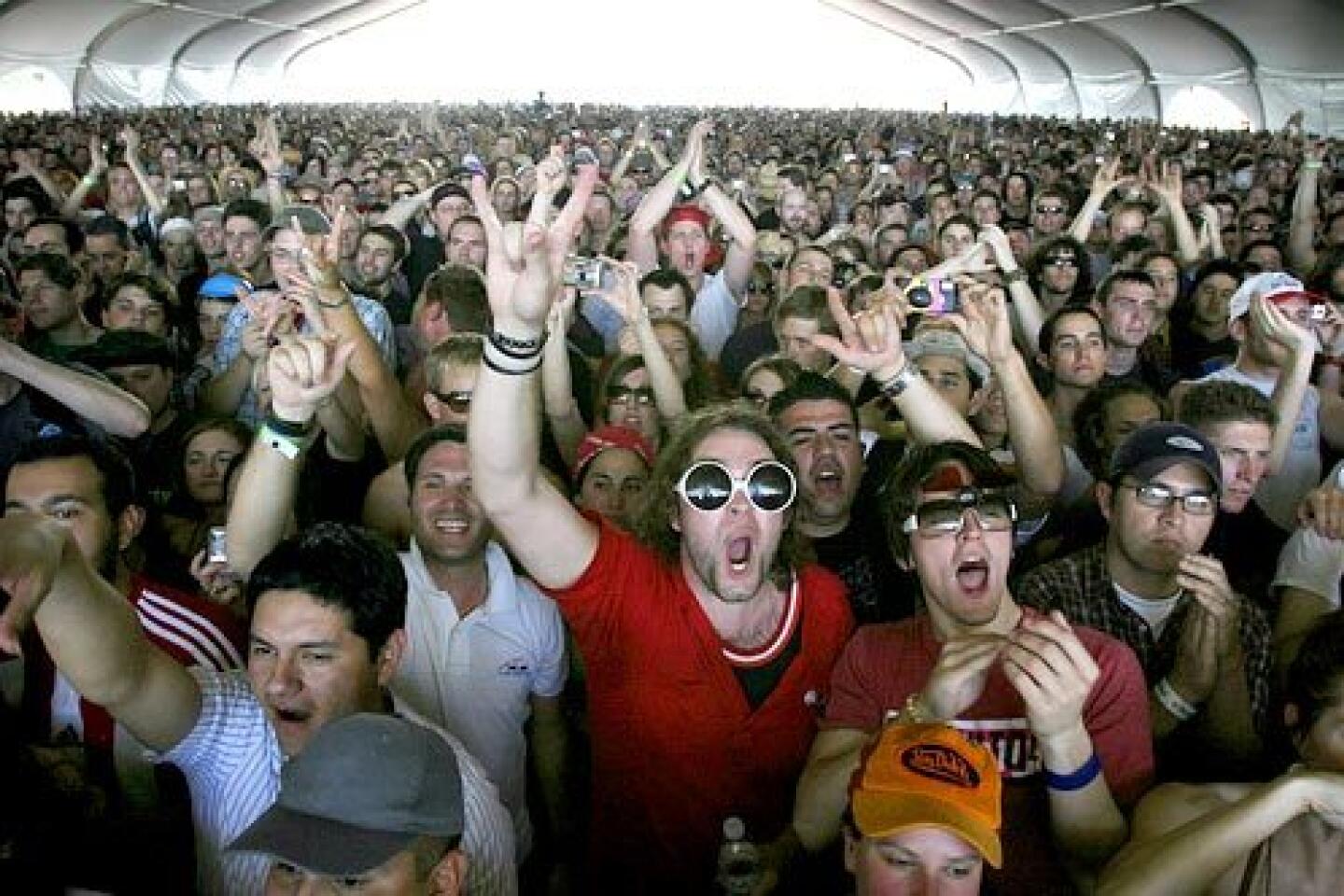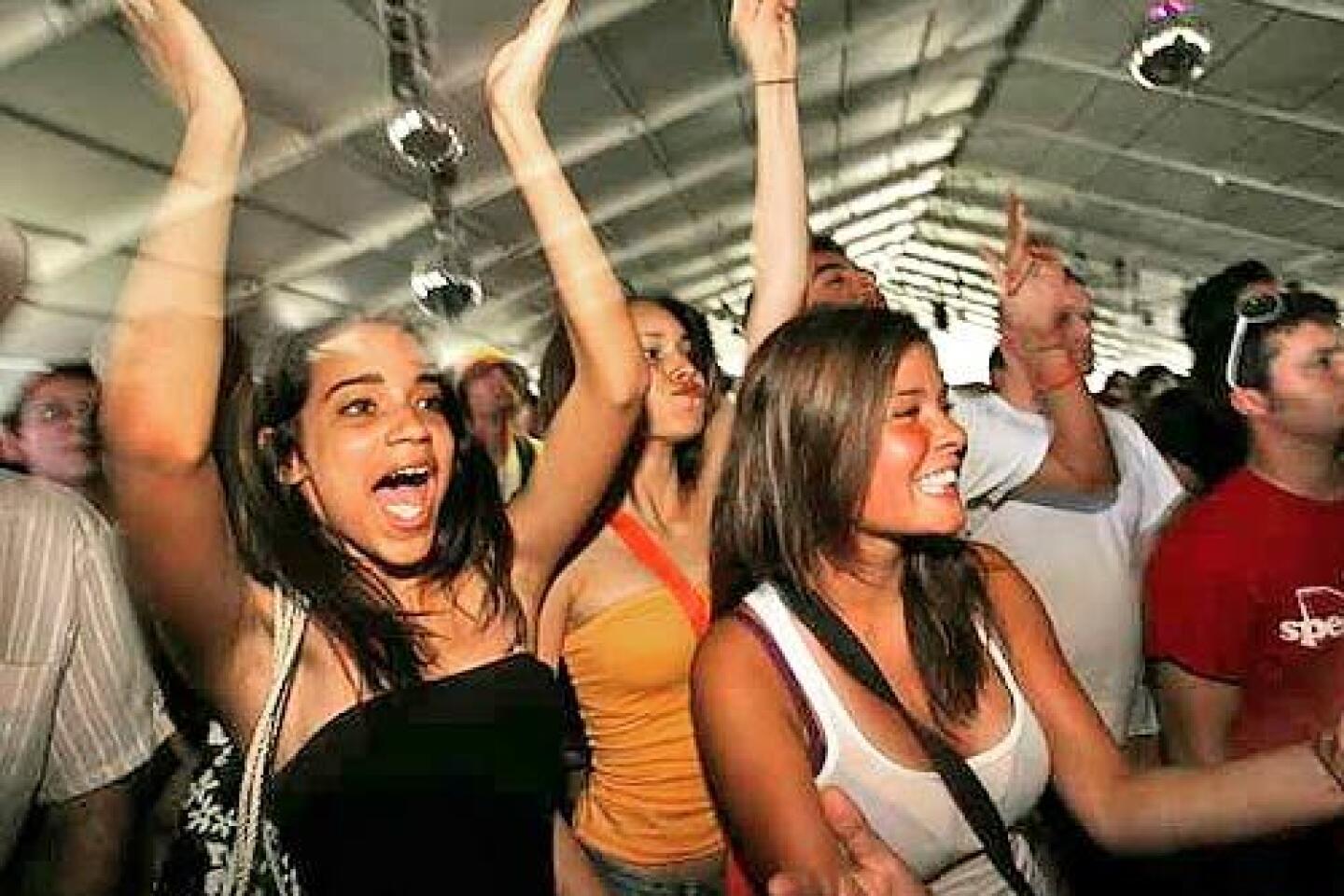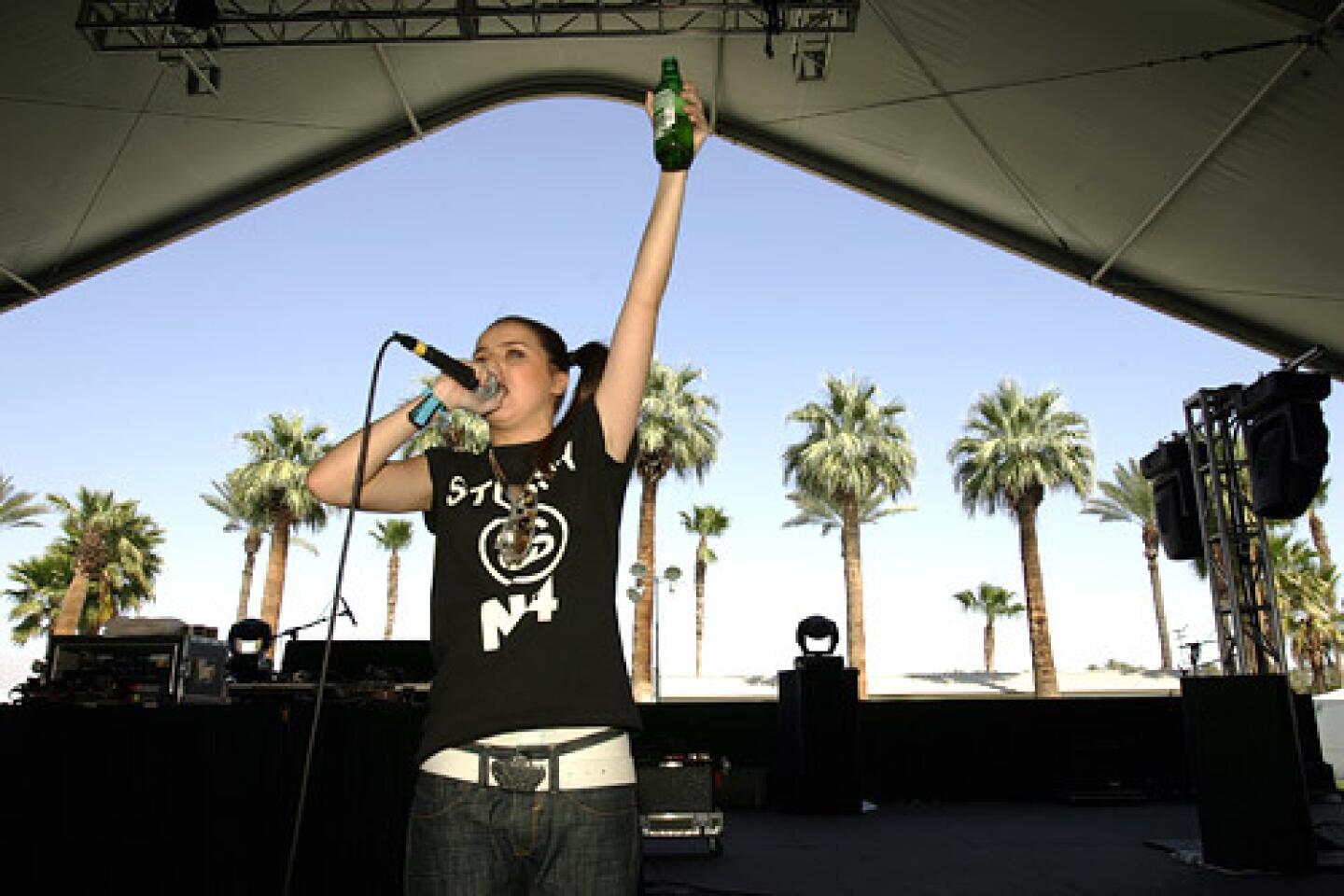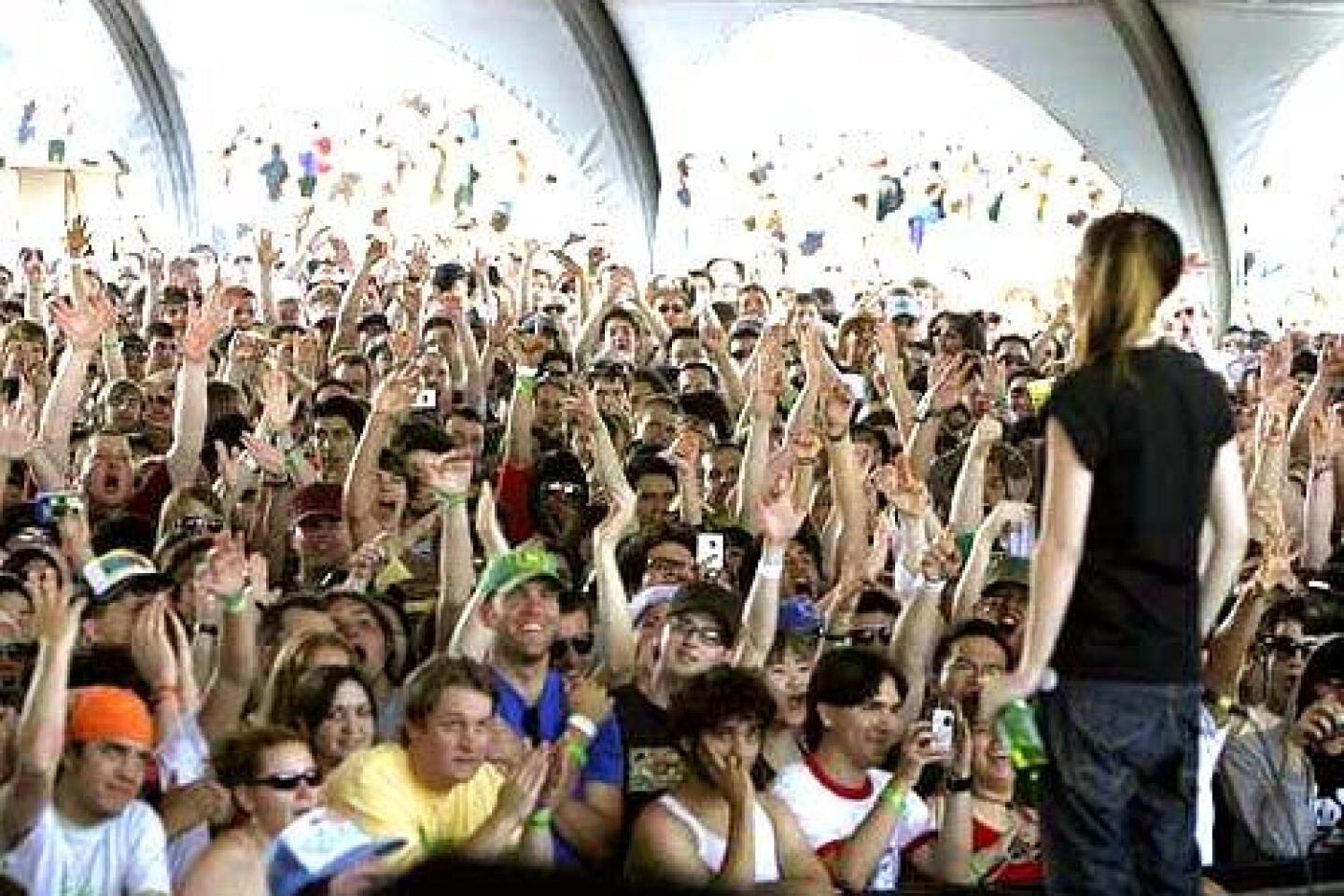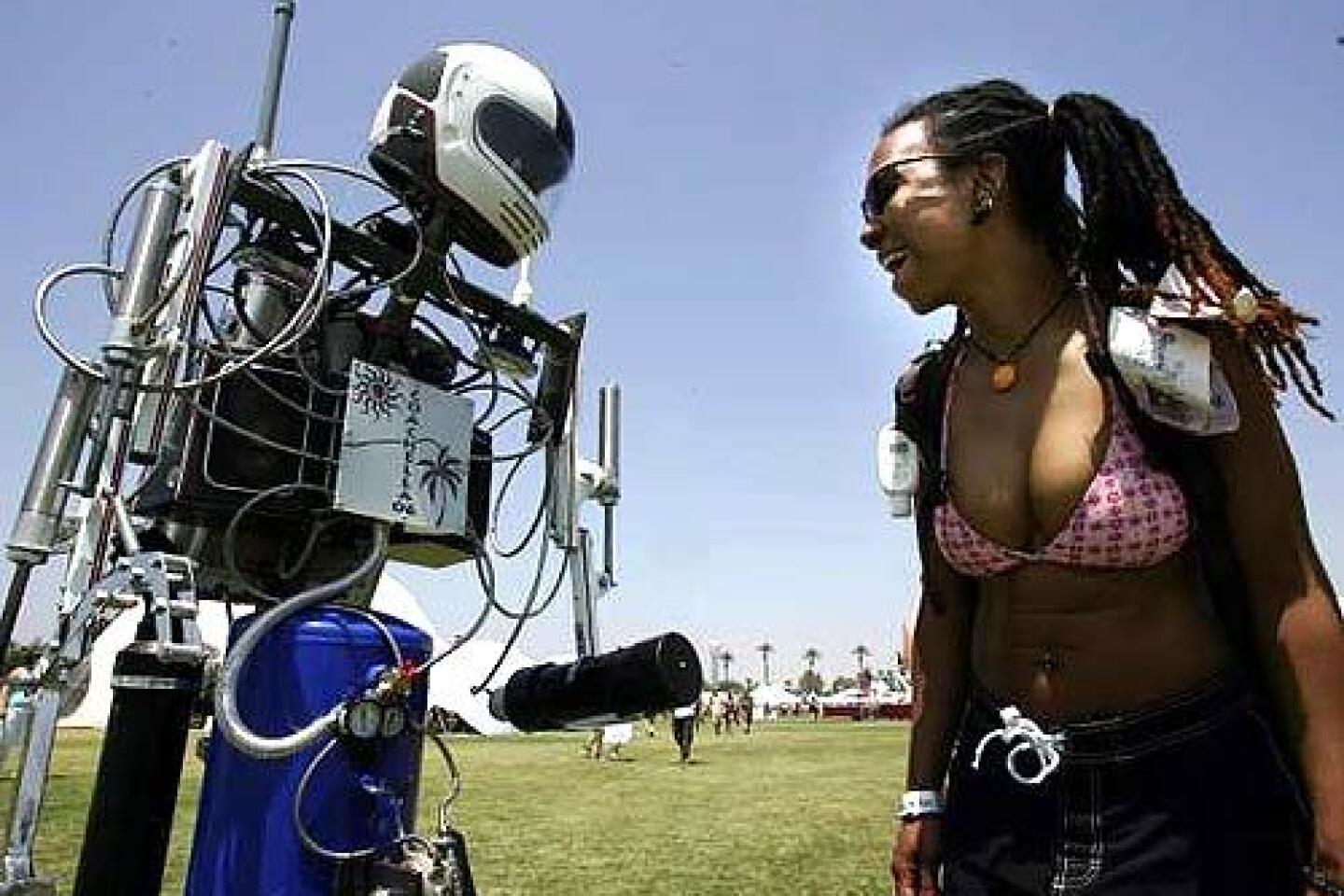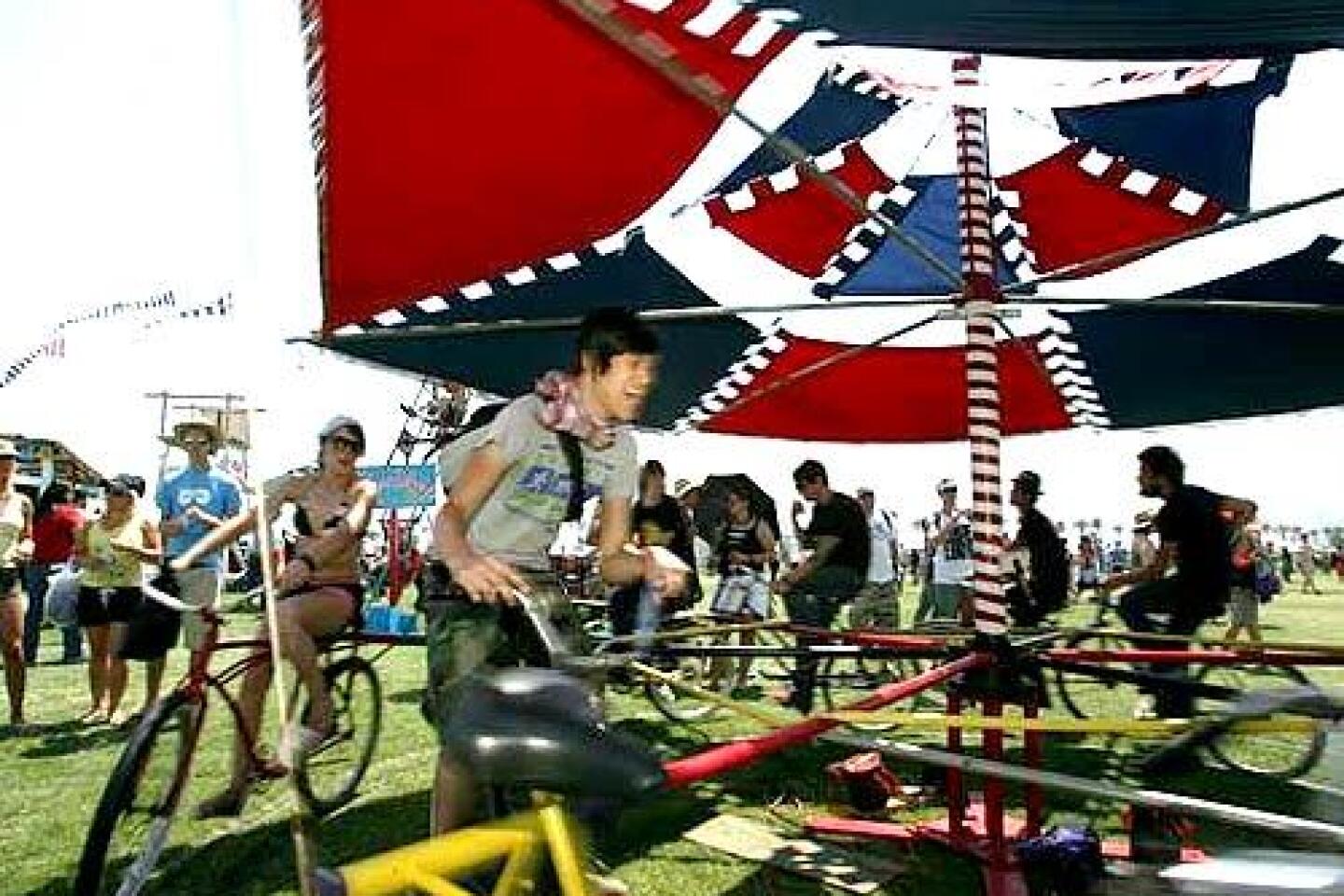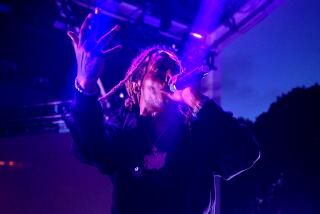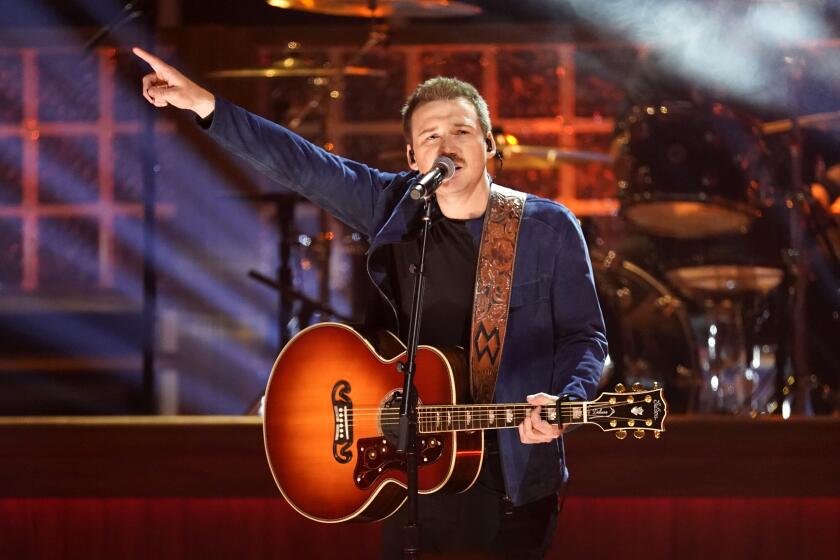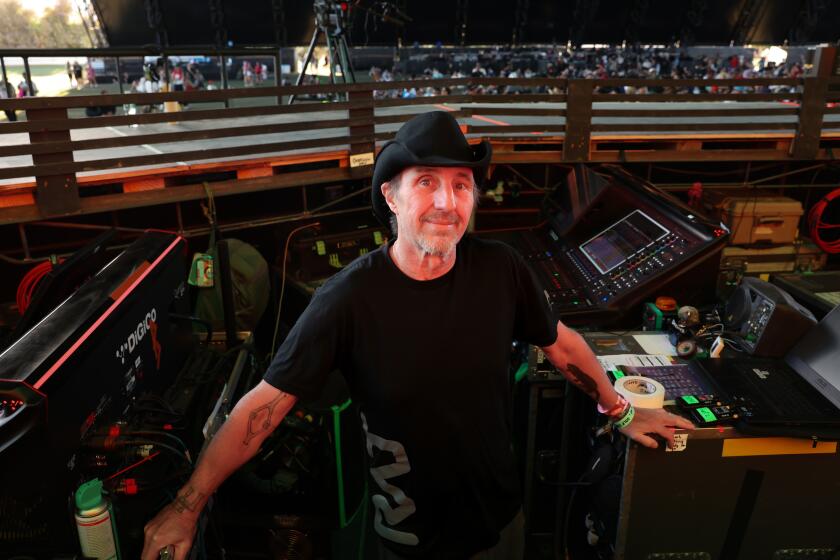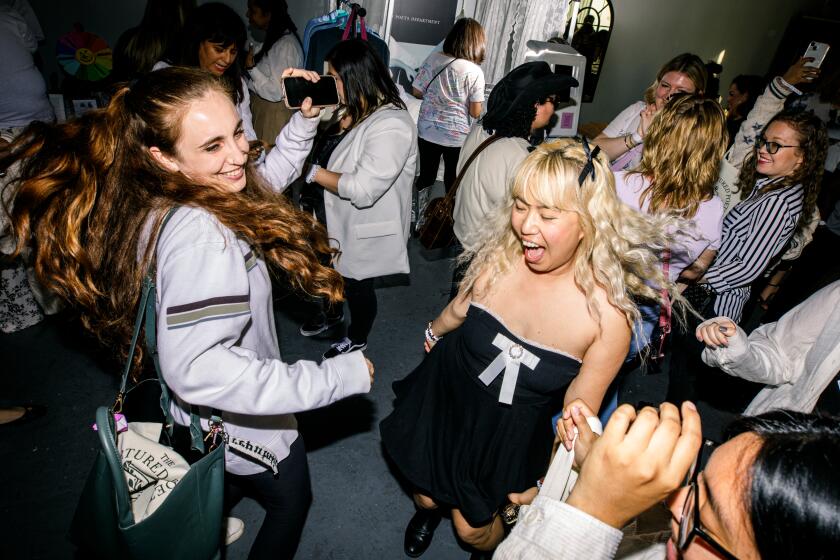All together now
Indio -- KANYE WEST didn’t play one of his smoothest shows Saturday, but it was one of his most significant -- if not for him then for the Coachella Valley Music and Arts Festival. By showcasing the hugely popular rapper on its main stage, the country’s preeminent rock gathering not only undertook a fundamental redefinition but also dramatically demonstrated a new ecumenical spirit in popular music.
As the rapper strode the stage in front of thousands of cheering fans packed onto the lawn of the Empire Polo Fields, it was easy to remember the notorious day in 1981 when rock fans waiting for the Rolling Stones at the L.A. Coliseum booed young R&B-rock firebrand Prince off the stage.
West would be followed Saturday by the ethereal soundscapes of Iceland’s Sigur Ros, the smart, bracing rock of Scotland’s Franz Ferdinand and the synth-pop of England’s Depeche Mode, all more typical of the festival’s alternative rock identity. But he was welcomed and heard on equal footing by Coachella nation.
The spectacle seemed to affirm a new openness after the decades of musical Balkanization that followed punk’s monolith-busting revolution. With the new alternatives that resulted from that mid-1970s upheaval came codes of cool that kept partisans of one sound isolated from certain others.
Now those divisions seem increasingly obsolete. That development was played out on other stages and in other genres Saturday, the first day of the two-day festival, but nowhere more dramatically than in rap.
That music’s audience has long been substantially white, but West’s brand of rap hadn’t reached into the segment of the rock world associated with Coachella. In its previous six editions the festival has showcased plenty of hip-hop, but the kind compatible with its frame of mind -- underground in breeding, noncommercial in the marketplace, progressive in spirit.
West was the perfect bridge to a new vision, a performer who racks up huge record sales and mainstream radio hits but also gets critical acclaim for pushing the music’s boundaries and makes headlines for feisty comments about such matters as the president’s feelings about black people and hip-hop’s prejudice against gay people.
On Saturday he was straightforward and fiery in a relatively brief set that came to a stop early while he consulted with his backing musicians. “I have to adjust my set,” he told the crowd. A few minutes later, seemingly impatient, he asked, “Y’all have any specific songs you want to hear?” But once he got rolling he was thoroughly commanding and authoritative, a ball of intensity wearing a Miles Davis T-shirt and a red bandanna around his neck. He brought along the string section that’s a big part of his distinctive sound and delivered some of his best songs, including “Jesus Walks” and “Touch the Sky.”
Playing in the bright, early-evening sun, West didn’t belabor the significance of his appearance, but he had fun with the encounter, introducing the N-word-studded hit “Gold Digger” by saying, “White people, this is your only chance to say [the N-word].” He also played a selection of oldies that were inspirations to him, including Michael Jackson’s “Rock With You” and, no joke he insisted, a-ha’s “Take on Me.”
West wasn’t the only rapper to do some hands-across-the-genres bonding Saturday. He was preceded on the main stage by Common, a leading figure in progressive or “conscious” rap and a beneficiary of the Kanye touch -- West produced his latest album, the highly regarded “Be.” The tall Chicagoan was similarly commanding and comfortable, more of a smooth operator than a fiery preacher. He alternated romantic interludes with reflections on the social and political saga of the black community and the history of hip-hop, getting a big roar from the crowd with some flashy break dancing.
That one-two hip-hop punch wasn’t the only instance of an unlikely alliance Saturday. Earlier in the day in the sweltering Mojave Tent, the young Australian band Wolfmother accelerated the momentum it’s been building in the last year by playing a set of power-trio rock straight out of the late ‘60s and early ‘70s.
The rhythm-section thunder and Andrew Stockdale’s guitar-hero playing and Ozzy-cum-Plant wail touched on Cream, Led Zeppelin and Black Sabbath, while his major-league afro could be seen as a nod to Grand Funk Railroad.
Anachronistic for sure but not really nostalgic, especially with the style being applied to some strong original songs. The enthusiasm from both band and crowd seemed totally free of irony, with everyone simply savoring the freedom to enjoy previously disdained qualities such as virtuosity.
In a way, Coachella has played a role in this melting of genre boundaries. The festival experience encourages curiosity, making it easy to stop on a whim at one of the two stages or three tents and meet up with something foreign. And with seven stagings now in the books, that’s a lot of people exposed to new possibilities.
With 48 acts reflecting the event’s traditional eclecticism on display Saturday, that dynamic continued in force, though the record-setting crowd of 60,000 did tend to inhibit circulation.
As strong as the bill was top to bottom -- from dynamic London rap newcomer Lady Sovereign to new-folk avatar Devendra Banhart to the experimental sound-collagists Animal Collective, to name three at random -- the crowning of Depeche Mode as Saturday’s headliner had been met with some disappointment, considering the lofty standards of that position and the Brits’ many recent shows in the Southland.
The veteran band closed the main stage with a solid if dutiful procession through their long history of catchy, existential hits, which exerted a strong influence on the development of dance, electronica and Goth.
Besides the rap revelation of Kanye and Common, the real main-stage star was the band Franz Ferdinand, which preceded Depeche Mode. The Scottish band made a big U.S. breakthrough last year, but its second album, “You Could Have It So Much Better,” hasn’t maintained the commercial momentum. So the group seemed to pack a something-to-prove intensity into its set.
More to Read
The biggest entertainment stories
Get our big stories about Hollywood, film, television, music, arts, culture and more right in your inbox as soon as they publish.
You may occasionally receive promotional content from the Los Angeles Times.
